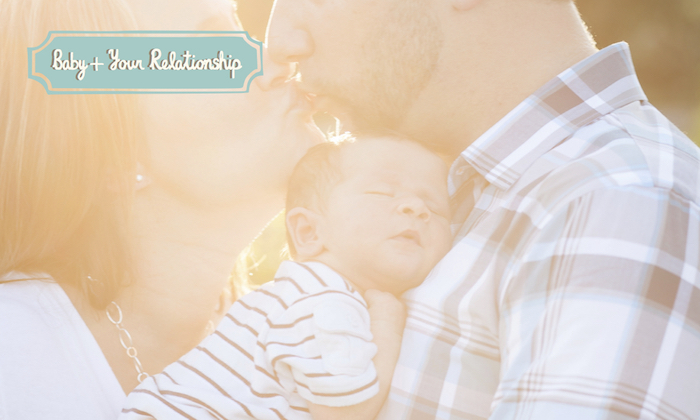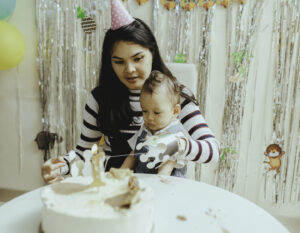
 Post Category - ExpertsExperts - Post Category - BabyBaby
Post Category - ExpertsExperts - Post Category - BabyBaby Post Category - PostnatalPostnatal - Post Category - ParentingParenting
Post Category - PostnatalPostnatal - Post Category - ParentingParentingThe arrival of a newborn can change the relationship between you and your partner… let it be for the better!
A baby neither makes nor breaks a marriage; a baby can, however, highlight the weaknesses and strengths of a marriage and will inevitably change it. How a couple chooses to respond to this change can set the tone for years to come — for better or worse, in sickness and in health.
What changes after the baby arrives
Labour arrives and so too does the baby. The initial moments and months can be an intoxicating, maddening mixture of delight and frustration. Who is this soul, and how do we care for him/her? How do we care for ourselves? And, what happens to the marriage?
There are inherent struggles of caring for a baby and one’s marriage simultaneously. Couples often find the initial period of caring for the baby to be the most stressful as the baby requires so much attention and energy. A baby’s needs must be met, and these needs are often put ahead of the couple’s. As the baby grows, the demands will shift as a (flexible) routine sets in, which means a couple may notice new opportunities to spend together. At any age, though, maintaining a healthy marriage requires creative work.
Some tips for a having a healthy marriage pre and post baby
Discussing how to share the responsibilities related to caring for a baby typically is not the sexiest discussion you’ll have, but it’s one that needs to be done.
- Set your expectations realistically by doing your research efficiently — you do not need to spend ten hours researching the best crib to buy. Use your time trying to understand the realities and responsibilities of carrying and taking care of a baby. Can you still have sex during your pregnancy? What about exercise? Do you know how many times, on average, a newborn will wake at night? Poops in 24 hours? Once you have done the research, it’s time for a flexible plan for both the baby and marriage.
- Voice your concerns early, and be proactive about them. Speak with your partner about any anxieties, fears, and/or concerns you have, and try to be proactive about them together. For example, if you are anxious about not knowing what to expect, then try doing something together about it such as taking an antenatal class.
- Decide which “gifts” you can give without being resentful. Can you really get up seven nights in a row and not resent your partner for sleeping peacefully in a separate room? If you can’t, then don’t do it (unless absolutely necessary). Would you be willing to let your partner go for a run on a Sunday for two hours if he/she watches the baby for a couple of hours later in the afternoon?
- Communicate! This is often an overlooked thing in marriages. None of us are mind readers to the point of always knowing what another human being wants or needs so ask. Questions such as “How have you been feeling lately?”, “What’s been working for you and what hasn’t while caring for the baby?”, “How are you feeling about us?” and “How can we work together to help problem solve?” can go a long way in making your partner feel supported and understood.
- Be kind. Those sleep-deprived months following the birth can be dizzying… torturing, really. Being kind in those moments isn’t usually easy, but try to think before you say something you may regret. A relationship in which you can express your thoughts and feelings is not an invitation for hurting or manipulating your partner, sleep deprived or not.
- Learn to speak your own language. Some couples like to set date nights, whereas others go with the flow of the week. Try not to compare too much with what other couples do.
Read more: Hong Kong Dining: Date Night Spots for Mamas and Papas
Finally, become curious. Baby or not, the world is full of delights and frustrations. Choose to stay curious about the experience you’re having individually as a mother/father and collectively as a couple. Find your own rhythm as a couple, and speak that unique language – even if, once in awhile, that language comes out sounding like goo goo gaga.
 View All
View All


 View All
View All


 View All
View All

 View All
View All

 View All
View All


